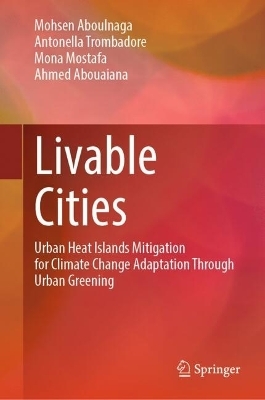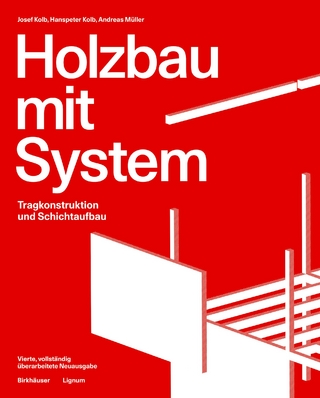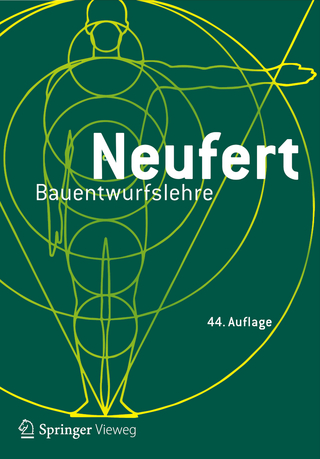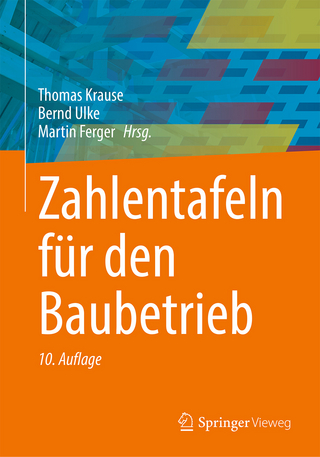
Livable Cities
Springer International Publishing (Verlag)
978-3-031-51219-3 (ISBN)
Livable Cities: Urban Heat Islands Mitigation for Climate Change Adaptation Through Urban Greening elucidates on livability in urban areas, providing readers with definitions and indicators of what makes a city livable. It comprehensively introduces the urban heat island effect (UHIE) and offers strategies for mitigating high surface temperatures in metropolitan areas and adapting to climate change (CC). The coverage highlights the linkage between UHIE and Sustainable Development Goals (SDGs), the socio-economic impacts of urban heat islands (UHIs), their effect on livability for citizens, and the costs and benefits of mitigating UHI. In addition, it encompasses background information about the problems and challenges that megacities face in the 21st century, followed by the cooling benefits that can be achieved from the different types of urban green coverage (UGC), whether conventional or innovative.
The book presents case studies on six cities that have successfully applied UGC: Chicago (United States), Curitiba (Brazil), Stuttgart (Germany), Tokyo (Asia), Melbourne (Australia), and Johannesburg (South Africa). Additional case studies illustrate UHIE mapping in greater Cairo, Egypt, and Rome, Italy, to determine hot spot areas that need interventions and prioritization of UGC. Highlights also include the role of blue and green infrastructures in creating livable cities in the post-COVID-19 world, trends of bi-correlation between urban green spaces (UGSs), UGC, and COVID-19, and global patterns of UGSs to shape better healthy, sustainable, and resilient cities.
- Explains urban heat islands, their causes, and strategies for climate change adaptation to create livable cities;
- Highlights the role of urban green coverage in post-COVID-19 regulations in shaping more livable, sustainable, and resilient cities.
- Explores ways to reduce the urban heat island effect by exploiting urban greening to mitigate high temperatures in large cities like Cairo and Rome.
Prof. Dr. Mohsen Aboulnaga is a Professor of Sustainable Built Environments with the Faculty of Engineering at Cairo University, Egypt. He has thirty-seven years of experience working in higher education, government, senior management, and consultancy on the issues of sustainable cities, climate change adaptation, sustainable development, and energy policies. Professor Aboulnaga is a senior expert on sustainable urban development (SUD), including green and smart cities and green buildings. His areas of competency encompass strategy planning, policy development, low-carbon society, and sustainable energy. Other areas of expertise include executive capacity building for local governments and coaching and training on strategic planning and leadership, Sustainable Development Goals (SDGs) reporting, innovation, and urban farming in cities. Professor Aboulnaga is an associate member of the European Sustainable Development Network (ESDN) Association, Austria (2010-present); a senior policy expert at the UNESCO Inclusive Policy Lab., Paris, France; a member of the Asian Institute for Environmental Research & Energy (A.NERGy), Incheon National University, South Korea (since 2015); and a registered expert with UNEP and ESCWA (since 1997). He has also been a selected member of the UrbanFarm Scientific Committee since 2019 and a member of the Jury of the UF Challenge in 2020 and 2021 at the University of Bologna Alma Mater Studiorum, Italy. Professor Aboulnaga has developed many Concept Notes for leading international organizations, namely the ENI ZOHR Sustainability Initiative (2019), European Union (EU) funded projects (2018-2019), and SUD for The Union for the Mediterranean - UfM (2017). He has been appointed by the European Union and Ministry of Foreign Affairs (MoFA) as a Senior Adviser and National Expert on the "Clean Energy Savings Mediterranean Cities (CES-MED) project (2015-2018) - a funded project by the European Union (2011-2018). Professor Aboulnaga has also been appointed a Senior Expert by the Human Dynamics Consortium-KG and developed the CES-MED National Recommendation Report (NRR) on Sustainable Urban and Energy Savings Actions (SUESA) for Egypt as part of the CES-MED project (2015). He has been appointed by the EU and MOFA (May 2016) as the National Expert of CES-MED project in Egypt - Associated to Transitions Sustainability Consultant in Paris, France, and developed the Sustainable Energy and Climate Action Plans (SECAPs) for two cities. In 2020, Professor Aboulnaga organized with the Technical University of Lisbon, Portugal, and the University of Florence, Italy, the international design competition "HOME-KIT Sustainable Modular Houses for Slum Dwellers amidst COVID-19", July 2021, Lisbon. Prof. Aboulnaga is the author of four books published by Springer and 40 chapters in books published by Springer and Elsevier. He has also been an invited keynote speaker to more than 400 international and regional conferences, seminars, workshops, and training programs. He has over 180 international publications and presentations and has reviewed 80 articles for many international journals. He holds a Ph.D. in Energy Efficiency in Built Environments from the University of Leeds, UK, and an M.Sc. and BSc. (Arch.) from Cairo University.
Prof. Antonella Trombadore has been a Professor of Environmental Design with the School of Architecture (DIDA) at the University of Florence, Italy, and the University of Tirana (Albania) since 1999. She is a qualified Associate Professor (2018), a Researcher RTDb in Energy Management, and a qualified architect in sustainable and green architecture, responsive design, resilient cities, and sustainable immersive tourism. She is the Director of Research Laboratory BeXLab Building Environmental Experience, responsible for stimulating the interdisciplinary approach of Living Lab and the participatory process for bu
1. Liveability - the Direction to Mitigating Urban Heat Islands' Effect, AchievingHealthy, Sustainable, and Resilient Cities, and the Coverage.- 2. Understanding Urban Heat Island Effect - UHIE: Causes, Impacts, Factors and Strategies for Better Liveability, and Climate Change Mitigation and Adaptation.- 3. Urban Green Coverage as a Strategy for Mitigating High Temperatures in Cities.- 4. Global Cities' Plans to Mitigate Urban Heat Island Effect Exploiting Urban Green Coverage.- 5. Urban Heat Islands Assessment and Urban Green Coverage in Large Cities - Cairo, Egypt and Rome, Italy.- 6. Environmental Framework for Mitigating High Temperatures in Global Cities by Exploiting Urban Green Coverage - Two Case Studies: Cairo, Egypt and Rome, Italy.- 7. Urban Green Coverage and its Role in Post COVID-19 Regulations and Recommendations.
| Erscheinungsdatum | 02.07.2024 |
|---|---|
| Zusatzinfo | XC, 750 p. 604 illus., 602 illus. in color. |
| Verlagsort | Cham |
| Sprache | englisch |
| Maße | 155 x 235 mm |
| Themenwelt | Technik ► Architektur |
| Technik ► Elektrotechnik / Energietechnik | |
| Schlagworte | Climate-Change Adaptation • Climate-Change Impacts • Covid-19 • Green Infrastructure • Green open space • Green Roofs • Liveable cities • Megacities • resilient cities • Urban climate mitigation • Urban green coverage (UGC) • Urban Heat Island (UHI) • urbanization • Vertical greening |
| ISBN-10 | 3-031-51219-7 / 3031512197 |
| ISBN-13 | 978-3-031-51219-3 / 9783031512193 |
| Zustand | Neuware |
| Haben Sie eine Frage zum Produkt? |
aus dem Bereich


